Happy New Year from Pioneer Institute
/0 Comments/in Featured /by Editorial Staff Share on Facebook
Share on Twitter
Share on
LinkedIn
+
We hope you are taking time to celebrate and find peace during this season. Thank you for your support for Pioneer, which has helped us stay focused on steering the state’s debate on the pandemic response, and making progress on our key policy objectives. Here’s to a great 2021 for Massachusetts and the country.
Recent Posts

Doug Lemov on Teach Like a Champion & Successful Charter Public Schools
This week on “The Learning Curve," Gerard Robinson and guest co-host Charles Chieppo talk with Doug Lemov, author of the international bestseller, Teach Like a Champion. Doug describes how he became interested in charter schools, dating back to the late 1990s in Massachusetts, and how the sector developed into a nationally recognized success story.
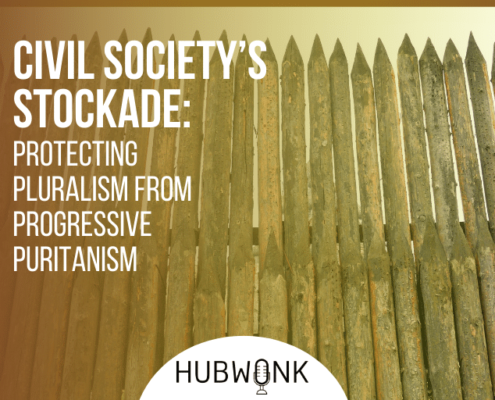
Civil Society’s Stockade: Protecting Pluralism From Progressive Puritanism
This week on Hubwonk, host Joe Selvaggi talks with Noah Rothman, associate editor of Commentary magazine, about his recently released book, "The Rise of the New Puritans: Fighting Back Against Progressives' War On Fun," examining how the attempt to remoralize American culture mirrors similar social movements in the past and what concerned onlookers can do to better manage this frenzied phenomenon.

William & Mary’s Dr. Charles Hobson on Chief Justice John Marshall, SCOTUS, & Judicial Review
This week on “The Learning Curve," co-hosts Cara Candal and Gerard Robinson talk with Dr. Charles Hobson, a retired resident scholar at the William & Mary Law School, 26-year editor of The Papers of John Marshall, and author of The Great Chief Justice: John Marshall and the Rule of Law. Dr. Hobson shares what students should know about the longest-serving, most important chief justice in the history of the Supreme Court, and his influence on our understanding of the U.S. Constitution.

Drug Price Control: Bad Medicine for Healthcare and Region
Hubwonk host Joe Selvaggi talks with Dr. Bill Smith, Director of Pioneer Institute’s Life Sciences Initiative, about the impact of the Inflation Reduction Act on long-term health costs. They discuss the bill's unintended consequences, potential effect on the region’s vibrant pharmaceutical research and development sector, and what citizens can do about it.

METCO’s Milly Arbaje-Thomas & Researcher Roger Hatch on MA’s Voluntary School Desegregation Program
This week on “The Learning Curve," co-hosts Cara Candal and Gerard Robinson talk with Milly Arbaje-Thomas, President & CEO of the Metropolitan Council for Educational Opportunity, Inc. (METCO) and Roger Hatch, co-author of Pioneer’s report, METCO Funding: Understanding Massachusetts’ Voluntary School Desegregation Program.
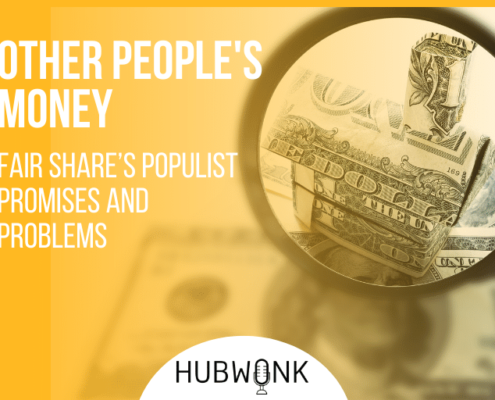
Other People’s Money: Fair Share’s Populist Promises and Problems
This week on Hubwonk, host Joe Selvaggi talks with Boston Globe columnist Jeff Jacoby about November’s Massachusetts Ballot Question 1, the so-called Fair Share Amendment. They examine both the merits and timing of a graduated state income tax, as well as the effects on society of creating separate categories of taxpayers, and the dangers of setting the many against the few.

Pioneer Institute Expects That Massachusetts Taxpayers Will Be Refunded $3.2B Due To State Revenue Cap
Pioneer Institute projects that the state will refund approximately $3.2 billion to taxpayers due to a state law sponsored by Citizens for Limited Taxation and voted on by taxpayers in 1986 that caps the amount of revenue the state can collect in any given year.

NYU Law Prof. Richard Epstein on the Founders’ Constitution & Federalism
This week on “The Learning Curve," co-hosts Gerard Robinson and Cara Candal talk with Richard Epstein, the inaugural Laurence A. Tisch Professor of Law at NYU School of Law, and author of The Classical Liberal Constitution: The Uncertain Quest for Limited Government. He describes the influence of 17th and 18th-century English ideas on our Founding Fathers’ views of ordered liberty and self-government.
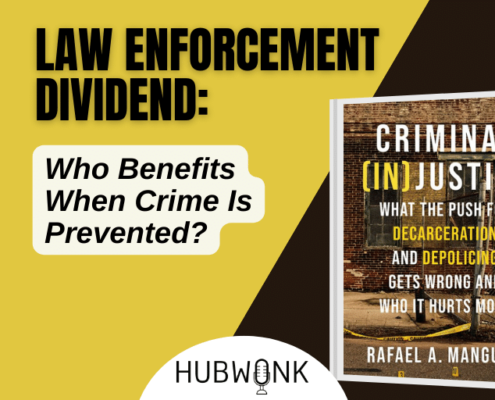
Law Enforcement Dividend: Who Benefits When Crime Is Prevented?
This week on Hubwonk, host Joe Selvaggi talks with Rafael Mangual, Manhattan Institute senior fellow, about his newly released book, Criminal (In)Justice, examining where crime is occurring in the U.S., what types of crimes those in the prison systems have committed, and the tradeoffs faced by society when considering defunding the police and reducing prison populations.

Engaged Detroit Founder Bernita Bradley on Homeschooling, Urban Education, & Parent-Driven Reforms
This week on “The Learning Curve," Gerard Robinson and guest co-host Kerry McDonald talk with Bernita Bradley, founder and president of Engaged Detroit, a parent-driven urban homeschooling advocacy coalition.
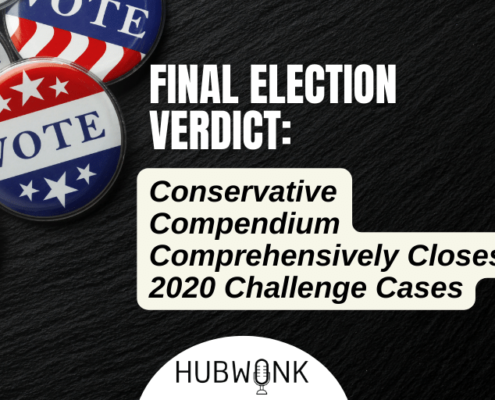
Final Election Verdict: Conservative Compendium Comprehensively Closes 2020 Challenge Cases
This week on Hubwonk, host Joe Selvaggi talks with Ilya Somin, author and George Mason Law professor, about the newly released report on all court challenges to the 2020 presidential election entitled, Lost, Not Stolen, exploring what its authors intended to achieve, what its readers can learn from its findings, and whether such intra-party scrutiny can serve to reassure voters that their concerns about election integrity have had their day in court.

Jean Strouse on J.P. Morgan & the Rise of American Finance
This week on “The Learning Curve,” Gerard Robinson and guest co-host Kerry McDonald talk with Jean Strouse, author of the award-winning biography of J.P. Morgan, Morgan: American Financier. They discuss why the general public and students alike should know more about the life and accomplishments of the controversial, late 19th- and early 20th-century American banker.
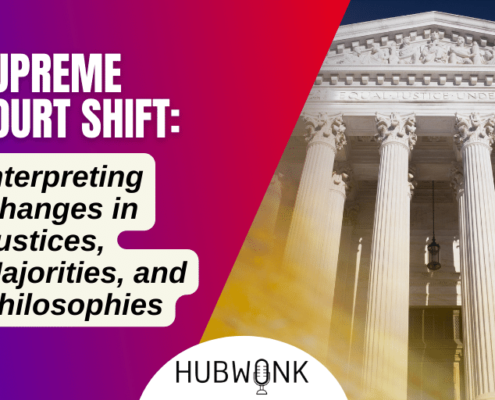
Supreme Court Shift: Interpreting Changes in Justices, Majorities, and Philosophies
This week on Hubwonk, host Joe Selvaggi talks with Ilya Shapiro, constitutional scholar, author, and senior fellow of Constitutional Studies at the Manhattan Institute, about the changing makeup of the court, and how this term’s most high-profile decisions reveal the judicial philosophies that comprise the current bench.

Mt. Holyoke’s Pulitzer-Winning Prof. Joseph Ellis on John Adams & American Independence
This Fourth of July week on “The Learning Curve," co-hosts Gerard Robinson and Cara Candal talk with Dr. Joseph Ellis, Professor Emeritus of History at Mount Holyoke College and author of the Pulitzer Prize-winning book, Founding Brothers: The Revolutionary Generation.

Survey of Business Sentiment: MA Income Tax Hike Would Lead to Employer Exodus
Nearly three quarters (73 percent) of Massachusetts business leaders think business associates will leave the state if a constitutional amendment appearing on the November ballot to hike taxes is successful, according to a survey conducted by Pioneer Institute.

Drug Cost Disruption: Direct Generic Access Can Save Consumers Billions
Hubwonk host Joe Selvaggi talks with Dr. Hussain Lalani about his recently published research on the potential for more than $3 billion in savings were Medicare to use Mark Cuban’s new direct-to-consumer drug company to purchase generics.

Lead Plaintiff David Carson & IJ Attorney Arif Panju on Landmark SCOTUS Decision Carson v. Makin
This week on “The Learning Curve," co-hosts Gerard Robinson and Cara Candal talk with Arif Panju, a managing attorney with the Institute for Justice and co-counsel in the U.S. Supreme Court school choice case, Carson v. Makin; and David Carson, the lead plaintiff. Panju shares the key legal contours of Carson v. Makin and the potential impact of the Court’s decision in favor of the plaintiffs.
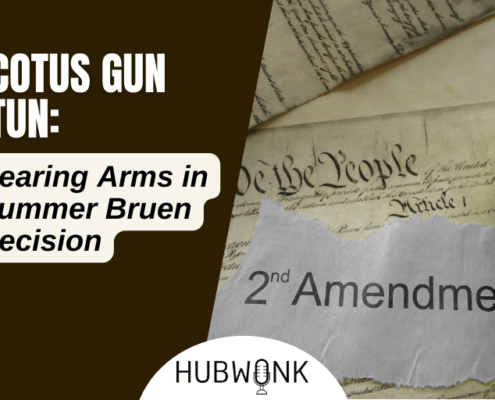
SCOTUS Gun Stun: Bearing Arms in Summer Bruen Decision
This week on Hubwonk, host Joe Selvaggi talks with CATO Institute research fellow Trevor Burrus about the recent U.S. Supreme Court decision New York State Rifle and Pistol Association v. Bruen and its implications for an individual’s right to carry a fire arm in states such as Massachusetts.



